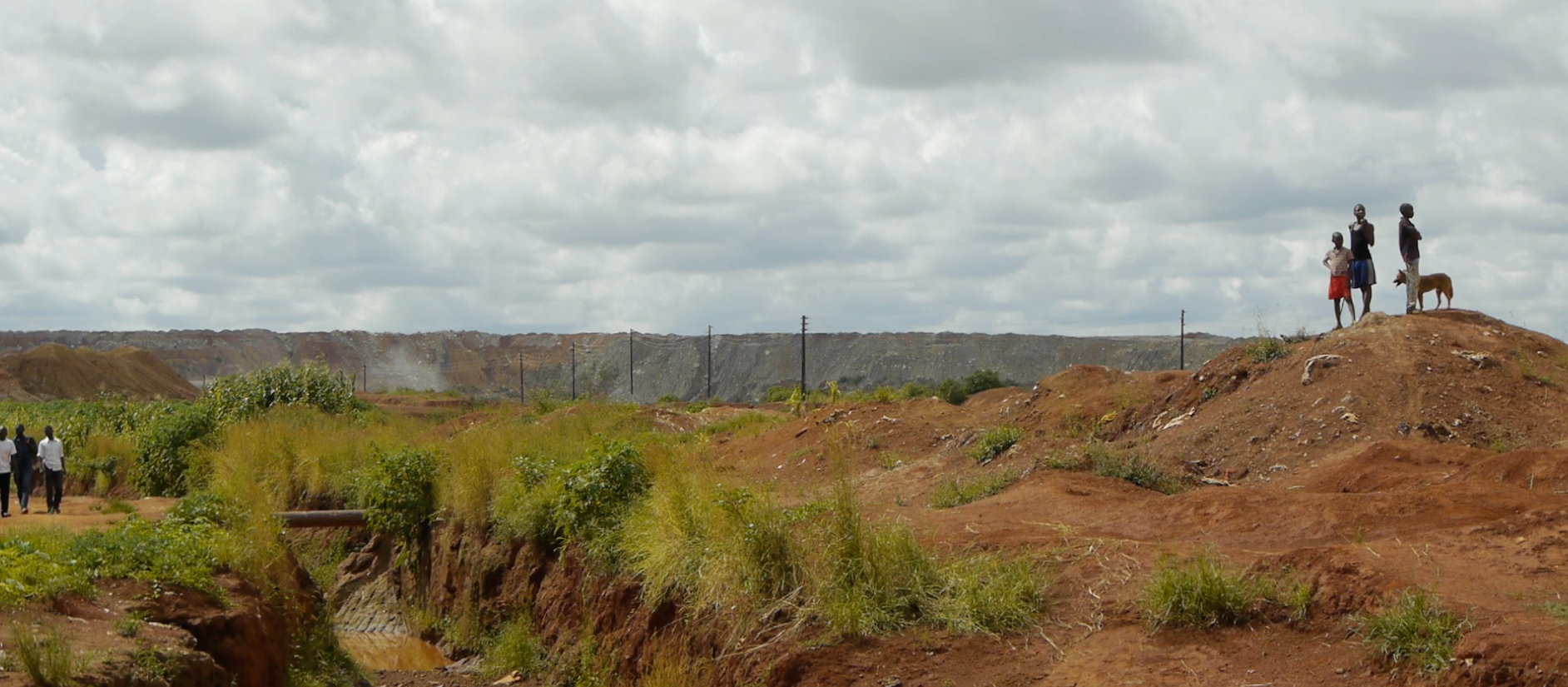
Cobalt blues
Environmental pollution and human rights violations in Congolese cobalt mines
New research by SOMO reveals the structural nature of human rights violations and environmental pollution caused by cobalt mining in the Democratic Republic of Congo (DRC).
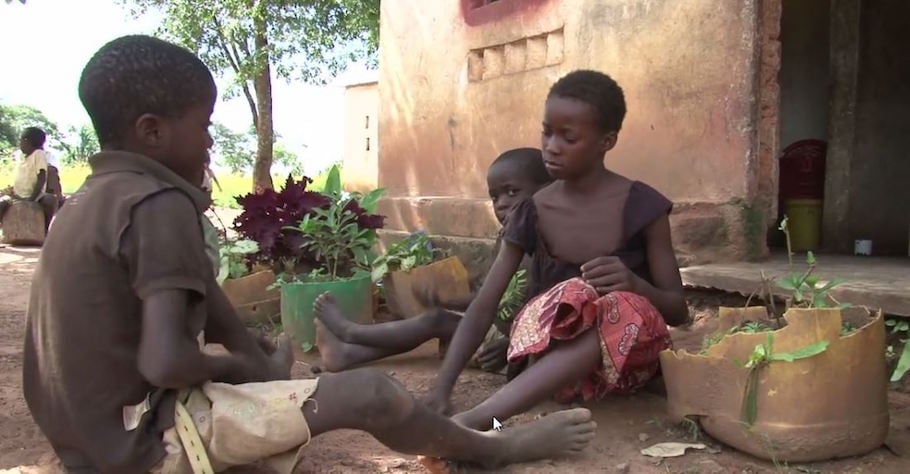
Cobalt is used in smartphones, laptops, electric vehicles and many other products that make our life more comfortable. But the production of cobalt in DRC results in the opposite for local communities whose life and rights are threatened by cobalt mines.
What’s wrong with cobalt mining?
To start with, the mines operate in close proximity to local towns and villages. As a result, thousands of people are exposed to forced relocations and severe environmental pollution from fumes, dust, noise, and effluent water from the mines, their trucks, and processing facilities.
Watch the video report by the GoodElectronics Network about the impact of cobalt mines:
Land rights and laws
The mines require huge swaths of forests or agricultural lands and vast amounts of water for their operations. Land and free access to water and forests have often been taken from local communities without their consent or even consultation.
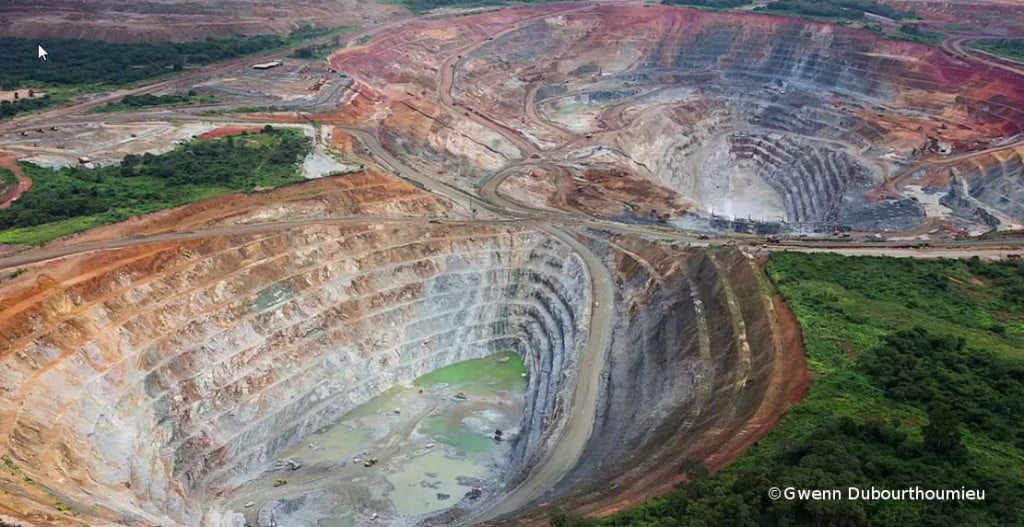
According to the Congolese Mining Code, mining companies are obliged to initiate and maintain constructive dialogue with communities affected by their projects. But mining companies have systematically neglected these responsibilities. DRC’s government has also failed to enforce laws to protect its citizens and natural environments affected by mining operations.
Forced relocations
The opening of copper and cobalt mines in DRC has resulted in the forced relocation of local communities. One of many examples is the village of Kishiba, relocated to Kimfumpa to make way for the ERG Frontier mine, owned by Eurasian Resources Group (ERG).
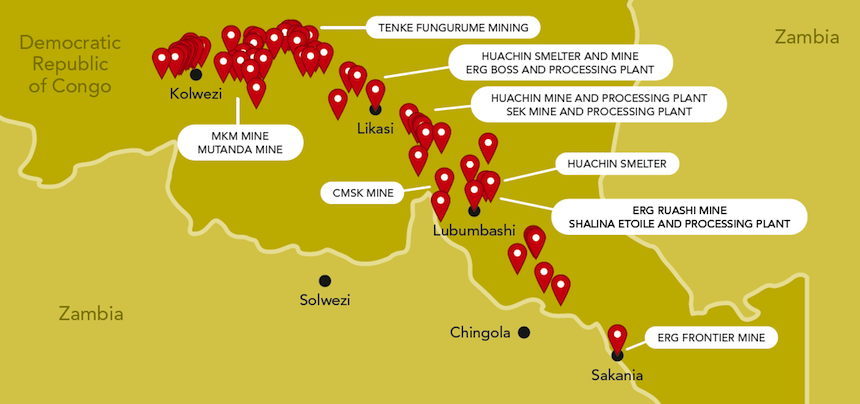
The village was moved without proper consultation with community members and without paying adequate compensation for the houses and the land taken. After relocation, the community finds itself in a remote area with poor soil, no clean water, no health care, no schools and very few jobs.
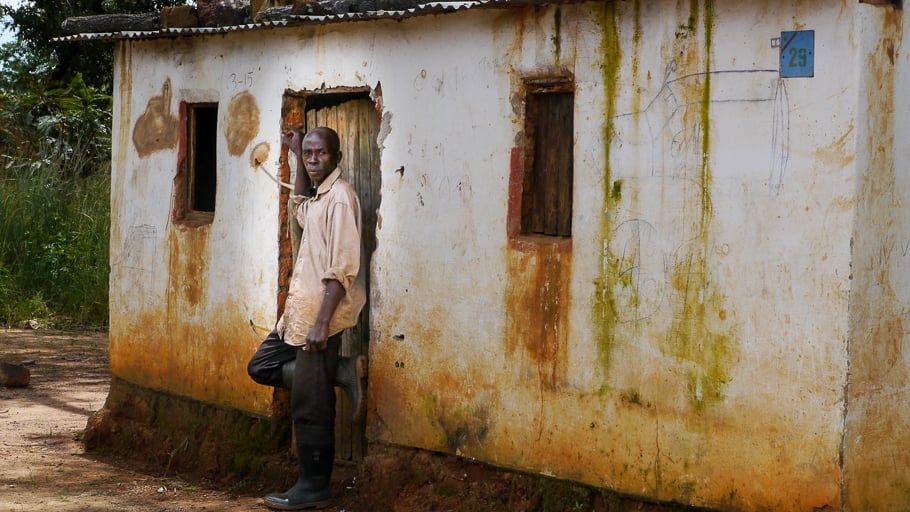
Polluted water
The mines often pollute the soil and water sources around them. One example is the discharge of contaminated wastewater from MKM’s mining operations into the Dikanga River. As a result, the water is unfit for human consumption, although local communities depend on it. The contaminated water is within the Basse Kando, an area that has protected status, making it illegal to mine there. MKM and several other mining companies were nevertheless granted mining licences by DRC’s Ministry of Mines.
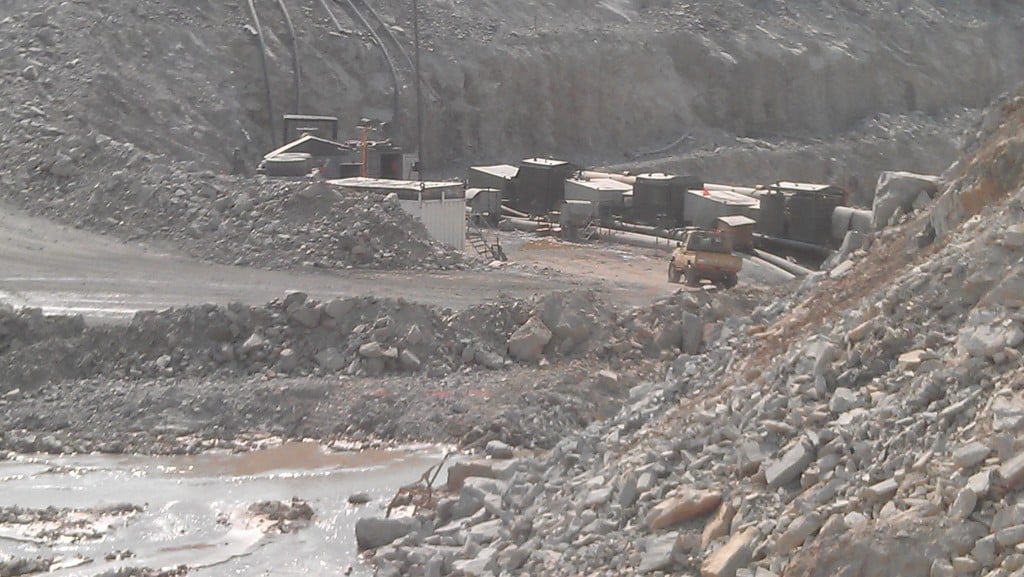
Dangerously polluted air
Thousands of trucks travel to and from the mines and related operations all day and through the night, exposing residents in cities such as Lubumbashi and Likasi to heightened air pollution and leaving them rightfully afraid of contracting lung diseases. Chronic exposure to such dust can lead to potentially fatal hard-metal lung disease. It can also lead to a variety of other pulmonary problems, including asthma, decreased lung function, and pneumonia.
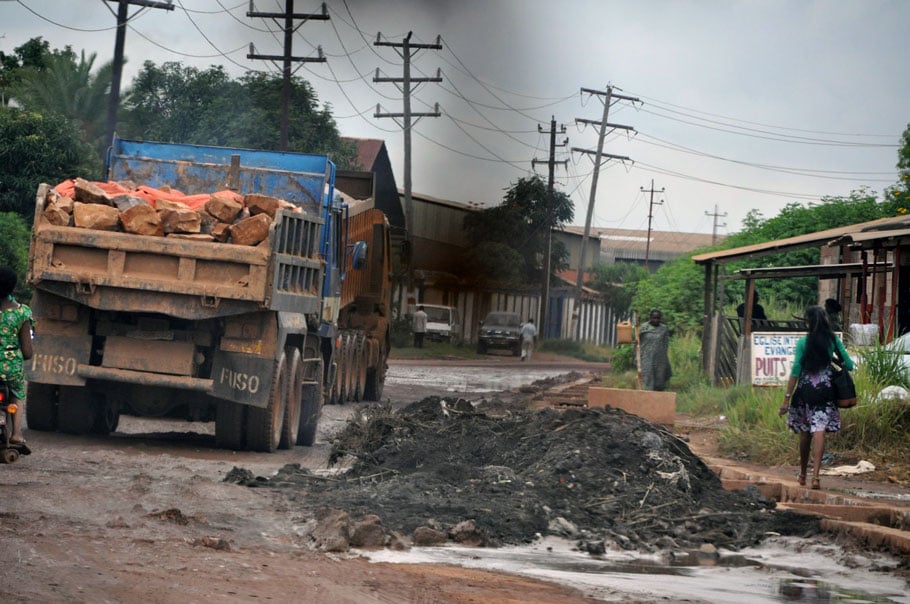
Rechargeable batteries
DRC produces about half of the world’s cobalt. SOMO’s report shows that most cobalt produced in DRC ends up in China, where it is used to manufacture rechargeable lithium-ion batteries. These batteries are used in an array of products sold all over the world, such as smartphones and laptops, and increasingly in electric cars. Given that the DRC produces half of the world’s cobalt, this means that any product containing the mineral will most likely contain cobalt from DRC.

Towards responsible mining
Congolese cobalt is not the only mineral associated with human rights violations. Responsible mining of tin, gold and of conflict minerals is still far away.
A transition to responsible mining urgently requires the full commitment of governments and of mining companies, as well as companies such as the electronics brands that use the minerals in their supply chain. To push this transition, the GoodElectronics network has organised a Round Table Meeting on Responsible Mining for Electronics on 19 April 2016, with international participants from companies and human rights NGOs.
Read more on mining:
- SOMO rapport ‘Cobalt blues: environmental pollution and human rights violations in Katanga’s copper and cobalt mines‘
- GoodElectronics factsheet ‘Responsible mining: Tin(opens in new window) ‘
- GoodElectronics factsheet ‘Responsible mining: Gold(opens in new window) ‘
- GoodElectronics factsheet ‘Responsible mining: Conflict minerals(opens in new window) ‘
About
This is a project of:
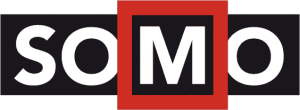


This story has been produced with funding of the European Union. The content of this publication is the sole responsibility of SOMO and can in no way be taken to reflect the views of the European Union.
Do you need more information?
-

Esther de Haan
Senior Researcher
Partners
Related content
-
Cobalt blues Published on:
 Esther de HaanPosted in category:Publication
Esther de HaanPosted in category:Publication Esther de Haan
Esther de Haan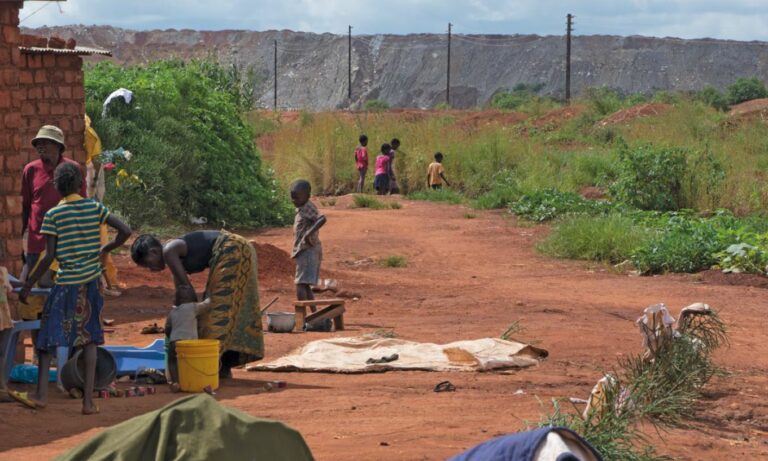
-
-
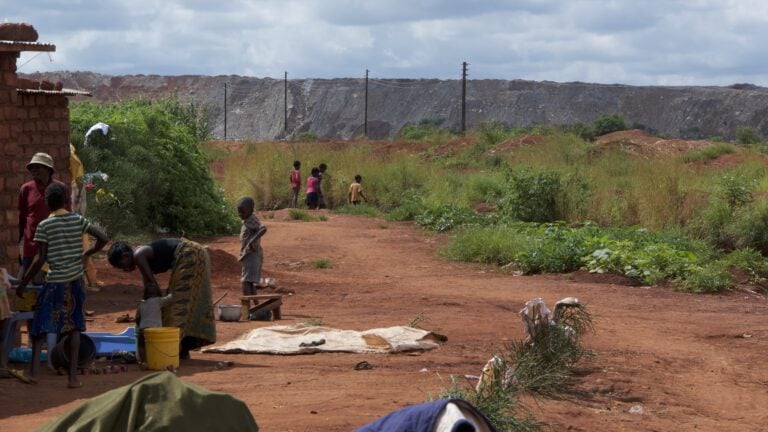 Community rights widely abused by cobalt mining in Democratic Republic of CongoPosted in category:NewsPublished on:
Community rights widely abused by cobalt mining in Democratic Republic of CongoPosted in category:NewsPublished on: -
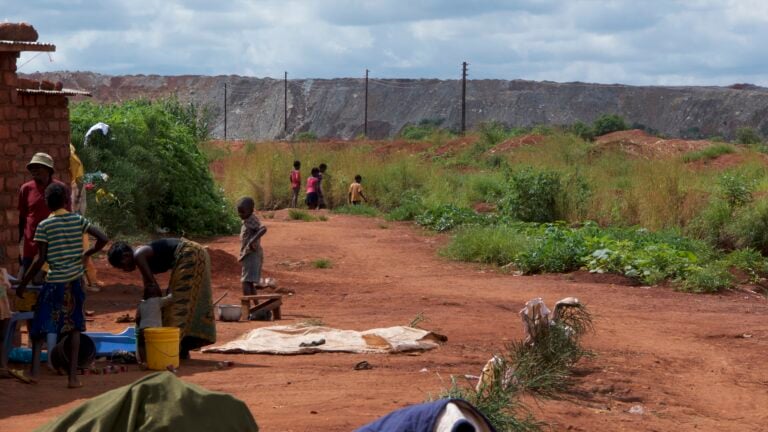
-
Responsible Mining: Cobalt Published on:
 Vincent KiezebrinkPosted in category:Publication
Vincent KiezebrinkPosted in category:Publication Vincent Kiezebrink
Vincent Kiezebrink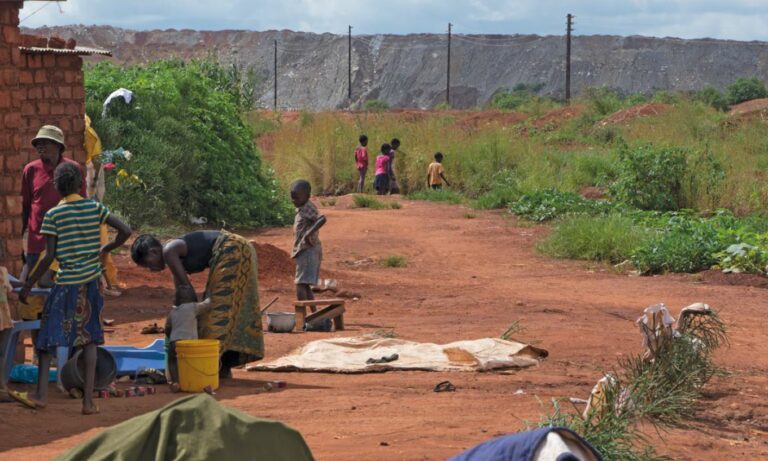
-
Responsible Mining: Conflict Minerals Published on:
 Gisela ten KatePosted in category:Publication
Gisela ten KatePosted in category:Publication Gisela ten Kate
Gisela ten Kate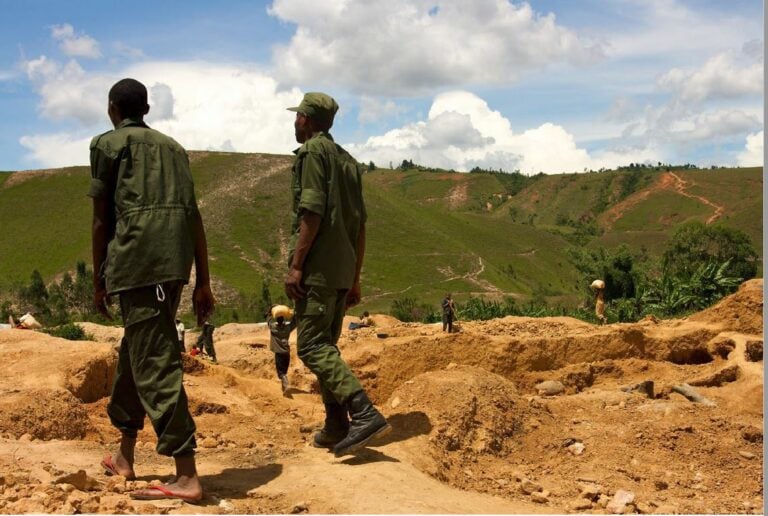
-
Responsible Mining: Gold Published on:
 Esther de HaanPosted in category:Publication
Esther de HaanPosted in category:Publication Esther de Haan
Esther de Haan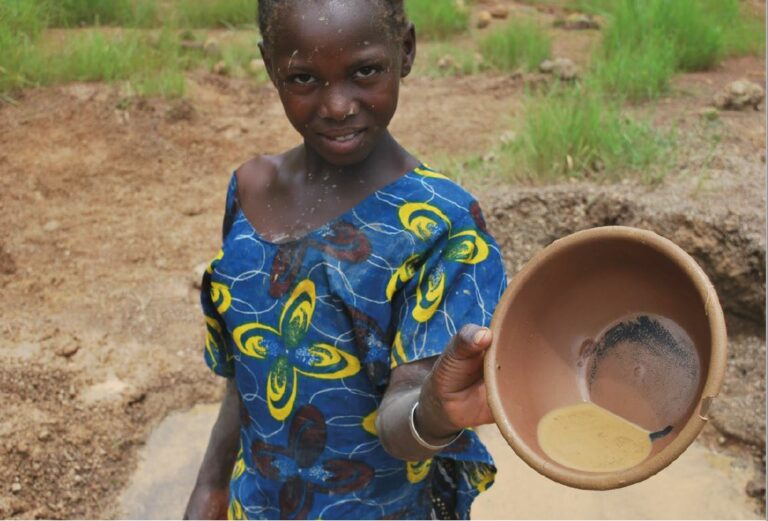
-
Responsible Mining: Tin Published on:Evert HassinkPosted in category:PublicationEvert Hassink
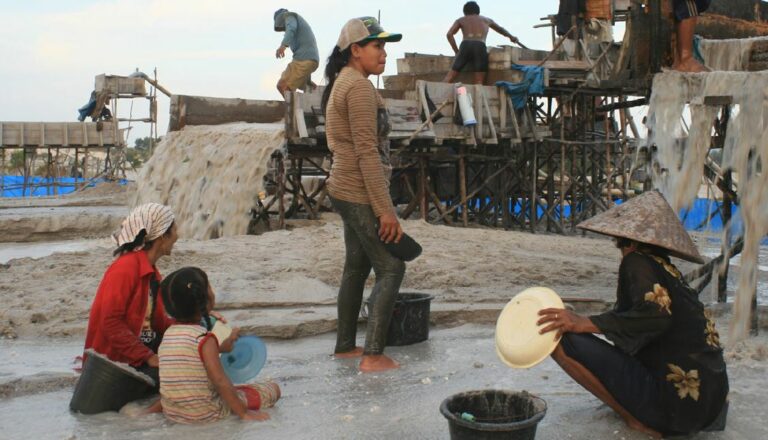
-


